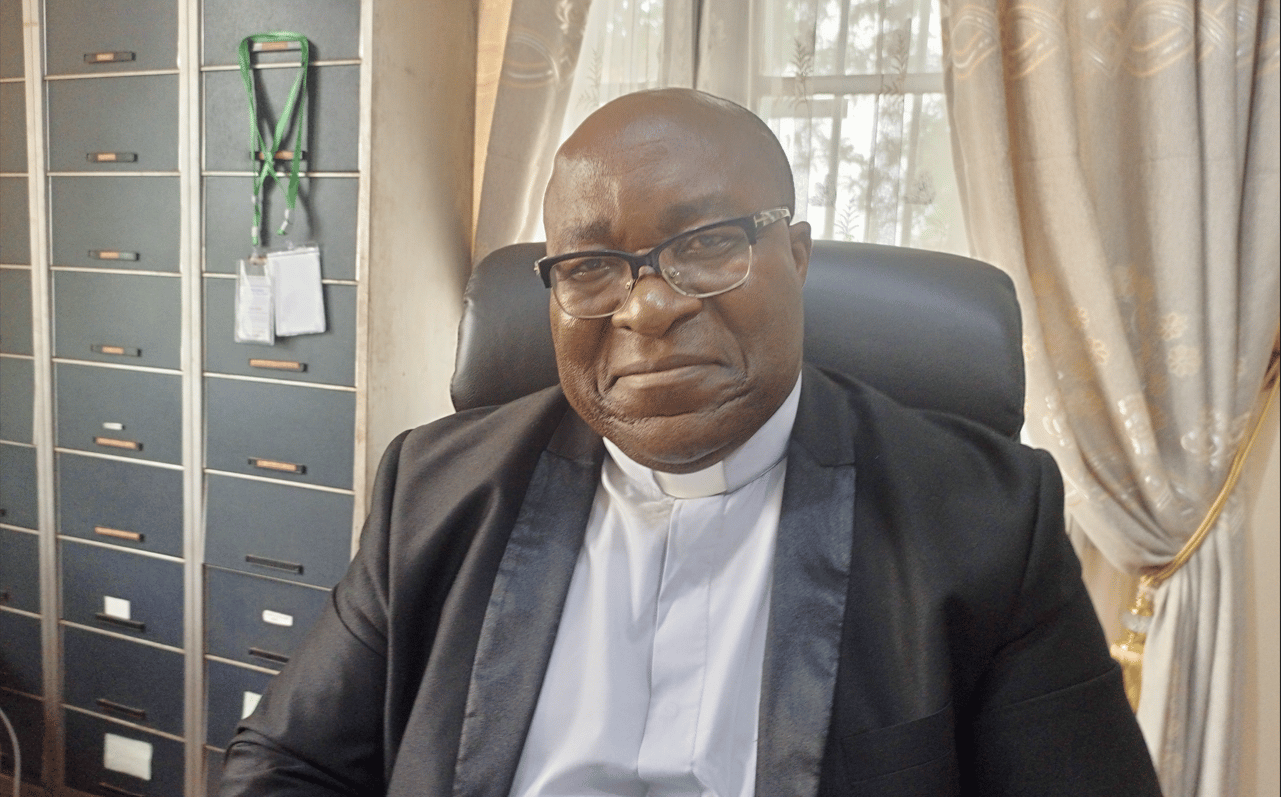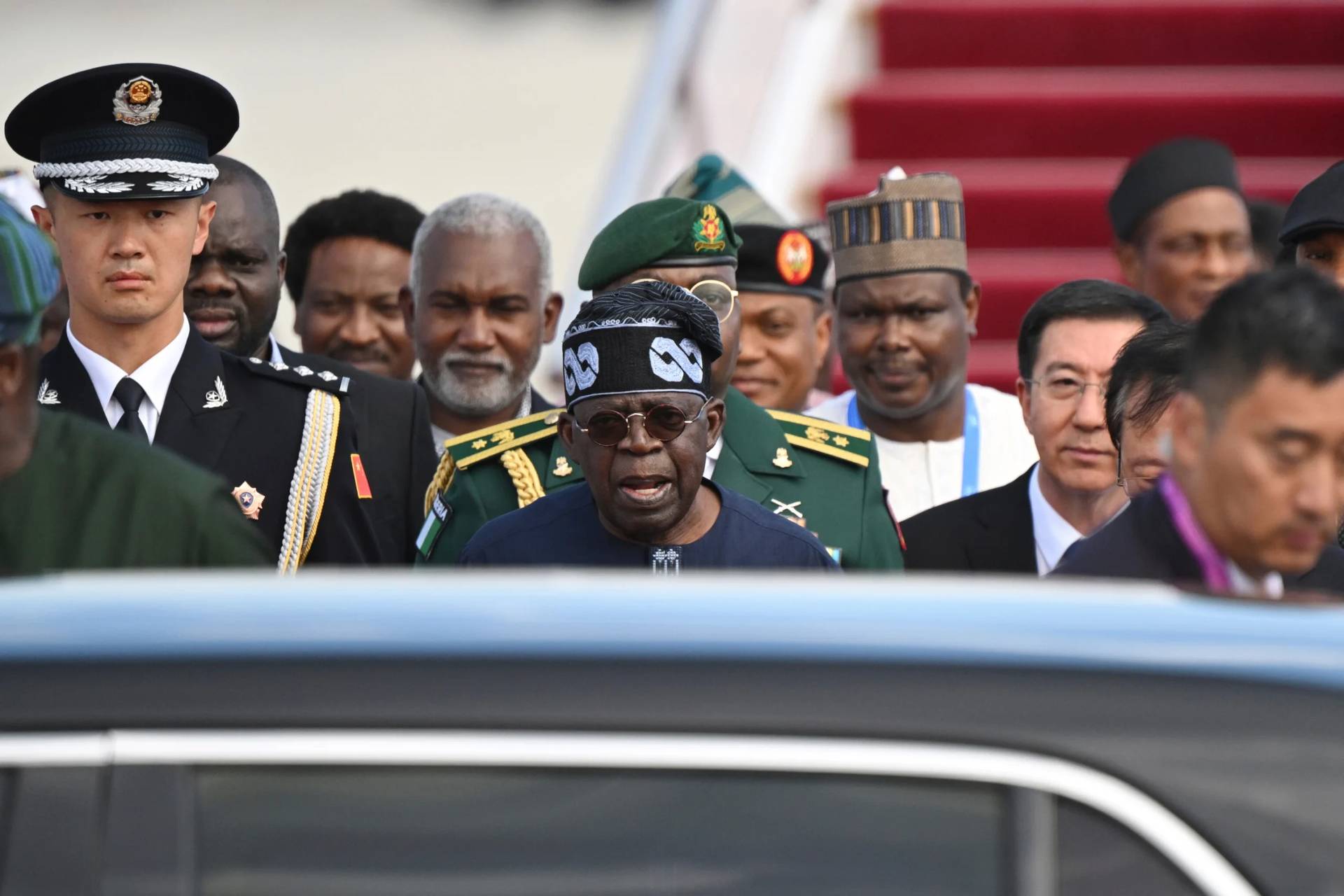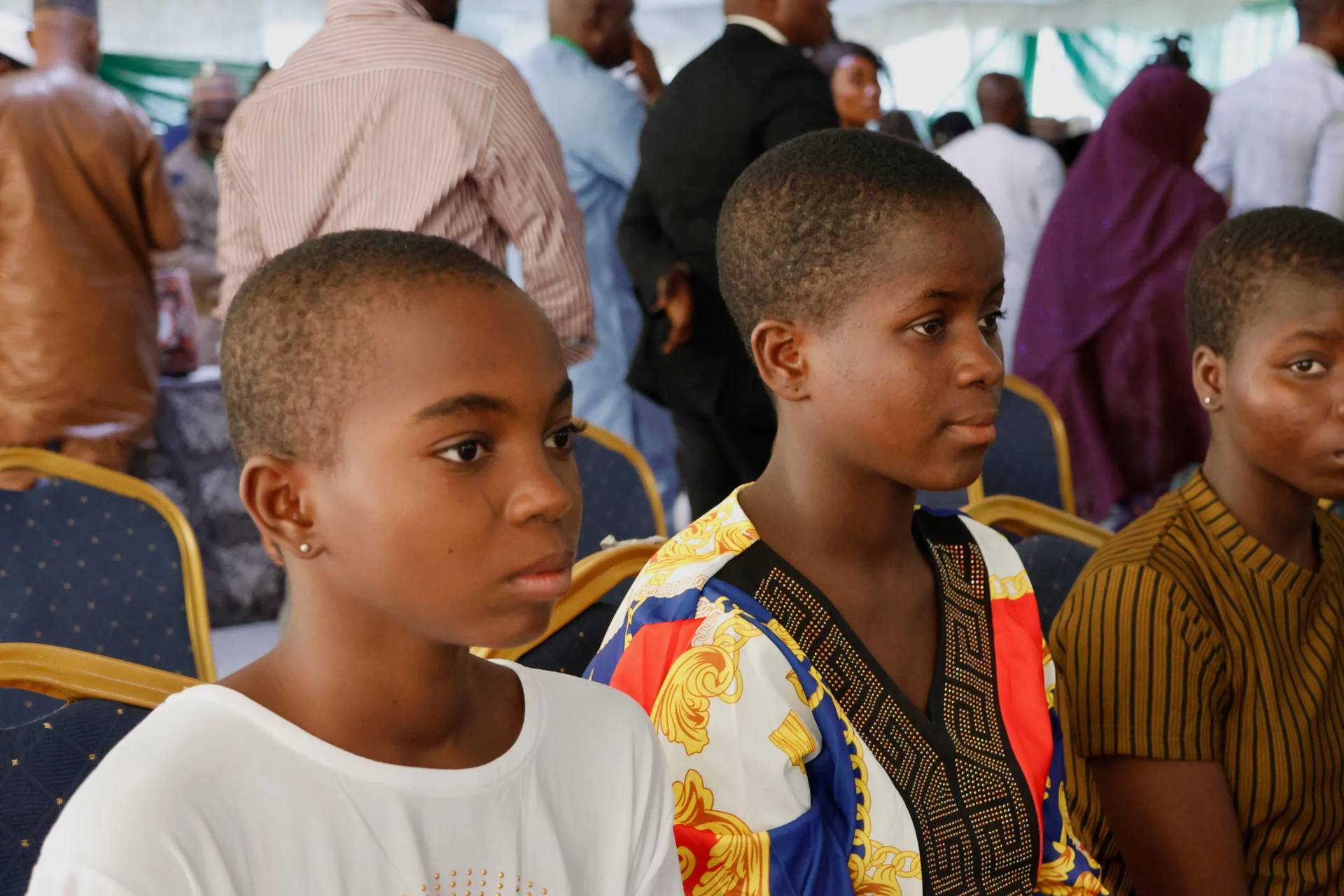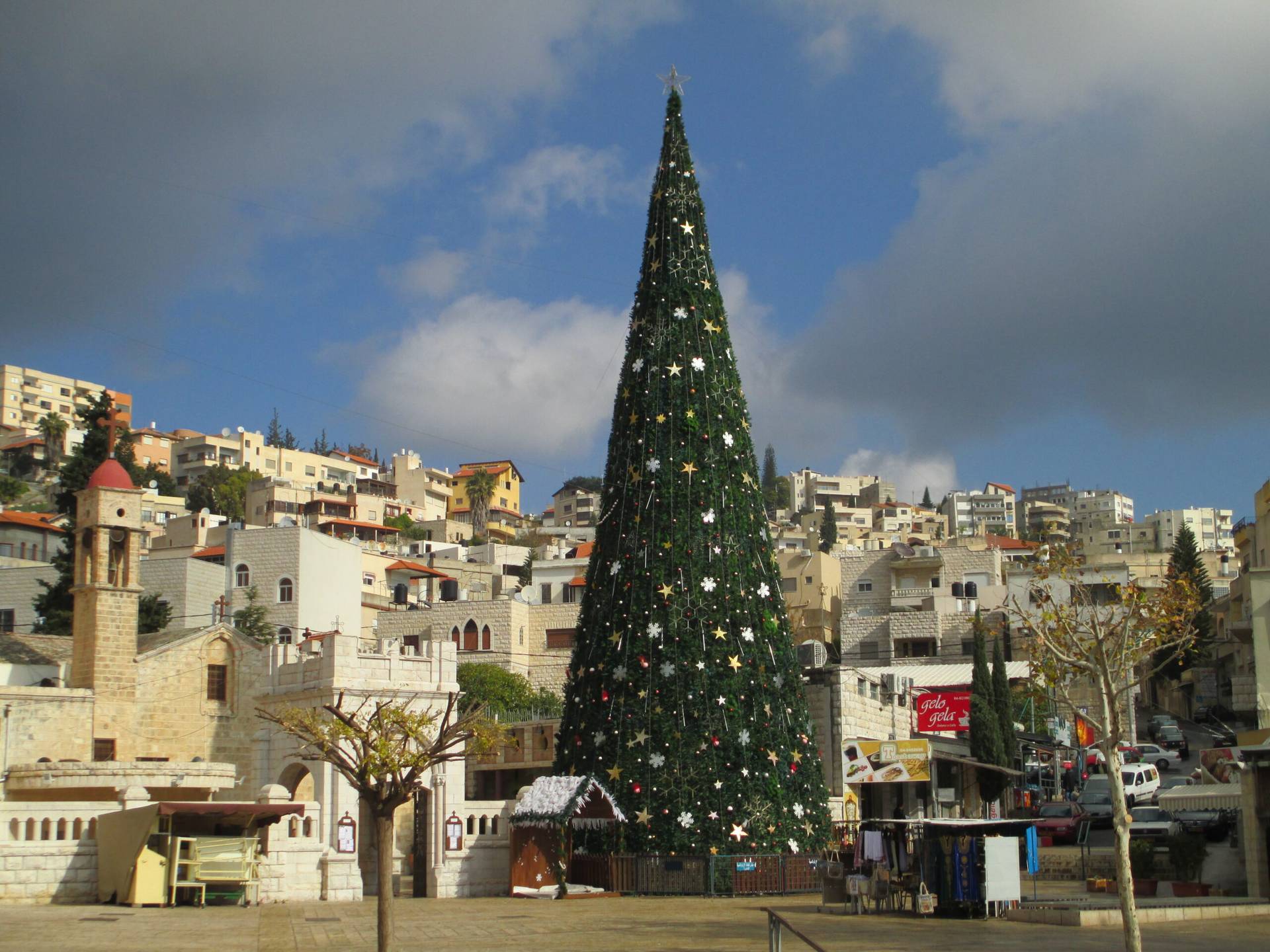YAOUNDÈ, Cameroon – Catholic leaders in Cameroon have called on the government of the west African nation to increase subsidies to church-run schools, allowing them to boost digital programming and cope with rising costs amid a protracted political crisis and ongoing internal conflict.
Catholic Education Secretaries from the country’s 26 dioceses made the appeal Nov. 24 during the first meeting of a Standing Committee of Catholic Education Secretaries for the 2023/2024 academic year.
The threats facing Catholic education in Cameroon’s English-speaking regions amid a violent separatist push aren’t just financial, as there is a growing phenomenon of teachers being kidnapped, and occasionally killed if a ransom isn’t paid.
Crux discussed the situation facing Catholic education with Father Zephyrinus Yem Mbuh, the National Secretary for Catholic Education. The following are excerpts of that conversation.
Crux: In June 2020, the government said it was releasing $10.8 million to support private education in the country. Did the Catholic education sector get something out of it?
Yem Mbuh: Catholic education in Cameroon has always benefited from government’s assistance. The question is, how much, and how sufficient is it? So very often we are like Oliver Twist, asking for more.
It would be very unfair to say that the government has not done anything. What we are saying is that it is not adequate yet. We would be most grateful if the government would actually increase the subsidy package so that the minimum wage may be easily applied to your teachers. When we talk about this, we are thinking of our schools that are in very remote areas where people actually struggle to make a living, and most parents there don’t even have money to pay fees.
If you increase fees there, you just ask them to take their children back home because they cannot pay. In order that we may have education available, and we’re talking about integral and inclusive education, in order that we may have it available to those Cameroonians in those remote areas, it’s important that the government does something substantial in support of Catholic education.
How much are you looking at?
If we have something like $6.6 million, we would definitely be comfortable with our teachers in all the nooks and crannies of the country. But this is like wishful thinking; it’s not just Catholic education. We have Protestant education, we have Islamic education, we have lay private education, and all of them are crying.
Like children of the same father, children of the same mother, the parent has to make sure that he satisfies or she satisfies all the children without favoring any and disfavoring another, that kind of thing. So, we are on our knees asking the government to look for all the means possible to sustain private education in Cameroon, because that is where there is quality in education in Cameroon.
What is the staff strength of Catholic education, and what does the total payroll look like?
I cannot tell you precisely right now what it is because as far as teachers are concerned, I need to look at my records. Looking at the salary bill, I may not even be precise, because we have schools that are diocesan, we have schools that are congregational, and those congregational schools –we will never ask them for their financial records.
What’s the difference between diocesan and congregational schools?
The congregational schools belong to religious men and women, religious communities. Even though they are Catholic, they do not directly belong to the diocese. They have the autonomy to run their schools and manage them as they think fit, as long as they follow government policy and diocesan policy. The bishop or the educational secretary of the diocese cannot go into their finances. So, we cannot give you a complete salary bill for our teachers.
It seems there are concerns that enrolment dropped this year? Why?
I talked about this new minimum wage that was introduced sometime in March 2023. In order to respect it, many of our dioceses increased school fees, and that increment has led to a drop in enrollment, especially in remote areas. We are counting something like 10,000 pupils in nursery and primary schools. That is how much the drop is. In the colleges, we’re counting 2,000. It’s not a small thing. It’s very drastic. If the government does not really step up, we will be in for real trouble.
Let’s talk about the crisis in Cameroon’s English-speaking regions. How is this crisis affecting Catholic education in particular?
Well, the crisis is affecting Catholic education terribly because in the very remote communities, either they are completely away from the grip of the crisis, or they are fully under the control of the crisis. In other words, under the control of the separatists. In those communities, there is nothing Catholic as far as schools are concerned because the separatists would not want any school that is called Catholic or Protestant or Islamic or lay private. They want what they call ‘community schools.’
There we are, still trying to test the grounds and see where exactly it works. Of course, it does not work without them [the separatists]. It does not work without them because you try to run a school without them, they will just come and close it and take away your teachers and ask you for a ransom. That is something that is not wonderful.
At the same time, we know those so-called separatists. They are our Christians. Some of them are our Christians, some of them are not. We still have to relate with them as pastors relating with their flock, and at the same time trying to look for a solution that will bring peace to our country once and for all.
You talk about this tendency to kidnap teachers, students. Is there a possibility to have statistics of maybe how many teachers?
No way! I cannot give you any statistics, but so many people have been kidnapped. Some have even been killed. Just yesterday [Nov. 23] there was a picture of a teacher circulating who had been murdered, assassinated the night before, and he was buried yesterday. That’s just one out of many cases, thousands of cases that we have had. This concerns teachers as whole, not just Catholic education teachers. Teachers are really at risk in some of our communities. But we do hope that before long our children will be able to go to school freely and the teachers will be able to do their work safely.
How different is Catholic education from, say, government schools?
The basic difference is in the teaching of religious studies and morals, because in the Catholic school, the person of Jesus is at the center of the formation that we give the children. We seek to establish a community of faith.
We have children in Catholic schools who are not Catholics and who must not be Catholic, neither must they become Catholic. But they at least can know what the Catholics do when they pray. They can know what the Catholics do when they celebrate Mass. They can know and should know what Catholic doctrine is, even if they may not adhere to it.
That already shapes their consciences. It shapes them in the way they grow, and they become responsible, transparent citizens of Cameroon, and they are better placed to work for good governance. Of course, many of those who are in government now, have passed through government or Catholic schools and some through other mission schools.
Cameroon is noted for lack of transparency, yet there are many in government who went through Catholic school?
As the Chinese say, you do not curse the darkness. You light a candle to dispel the darkness. And that’s what we’re trying to do. We’re trying to light a candle so that it may shine and dispel the darkness as well.
What gives the Church so much confidence in the face of so many challenges?
Our confidence comes from the very person we follow. We have the confidence of Jesus, okay? Because Jesus is the one who has asked that the Church should go and teach every nation, baptize them in the name of the Father and of the Son and of the Holy Spirit.
I mentioned earlier, we are not out to baptize in the Catholic school, but we are definitely out to teach. We are definitely out to transform any person who comes into the Catholic school into a responsible, transparent, peace-loving person in any society that he or she may find themselves in.
When you stand for the truth, you need to be courageous. That courage may either take you to your cross, or to your grave. But we are not afraid of death. We are rather afraid of not being able to speak the truth when we should speak it, where we should speak it, and as strongly as we should.

















